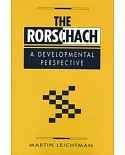Distributed by the University of Nebraska Press for Richard Altschuler & Associates, Inc./ Gordian Knot Books
This book provides a convenient single reference for better understanding the major sources of stress that parents of deaf and hearing-impaired children confront and the strategies and
resources they use to cope with the experience of grief, depression, anxiety, panic, and other negative states that often threaten their personal and family lives. The authoritative studies
presented in this volume dispel stereotypes about these parents by revealing differences in how they react to and cope with stressors—as individuals and as members of diverse social, ethnic,
religious, and national groups.
Leading experts in psychology, social work, sociology, and psychiatry address vital questions about parenting deaf and hearing-impaired children: What are the most common stressors these
parents face? Do white, black, and Hispanic parents use different coping styles and strategies for dealing with stress? Do hearing parents and deaf parents respond to and cope with stress
differently? Does the passage of time alleviate the nature of stress or alter the coping strategies that parents use to deal with stress? Which parents can expect to benefit most from support
groups? Do parents overlook specific important resources? Which coping strategies are the most and the least effective? What effect does a child’s hearing impairment have on the stability of
the family in general and on the relationships between husband and wife and between parents and other children? This rich collection of facts, perspectives, and insights is a vital resource
for parents of deaf and hearing-impaired children and their families.





















